
Gbedjromede: The Vibrant Heart of Cotonou
Gbedjromede is a bustling neighbourhood located in the heart of Cotonou, Benin's largest city. Known for its vibrant markets, lively streets, and rich cultural heritage, Gbedjromede offers a unique and immersive experience for tourists. The area is a melting pot of sights, sounds, and aromas that capture the essence of everyday life in Cotonou. One of the main attractions in Gbedjromede is the Dantokpa Market, one of West Africa's largest open-air markets. Here, you can find a wide array of goods, from traditional fabrics and crafts to fresh produce and exotic spices. The market is a sensory feast and a great place to pick up souvenirs or simply soak in the local atmosphere. Gbedjromede is also home to several cultural landmarks, including the Fondation Zinsou, a contemporary art museum that showcases works by Beninese and other African artists. This museum provides an excellent insight into the region's vibrant art scene and is a must-visit for art enthusiasts. Additionally, the neighbourhood's numerous street food vendors offer a taste of Benin's culinary delights, from spicy grilled meats to delicious rice and bean dishes. The lively nature of Gbedjromede makes it an excellent place to experience the daily life of Cotonou's residents. Whether you're exploring its busy streets, enjoying its culinary offerings, or visiting its cultural sites, Gbedjromede promises a memorable and enriching experience.
Local tips in Gbedjromede
- Visit Dantokpa Market early in the morning to avoid the midday heat and crowds.
- Carry small denominations of local currency for easier transactions at the market.
- Try local street food but ensure it's from a busy vendor to guarantee freshness.
- Wear comfortable shoes as you will be walking a lot in the bustling streets.
- Visit Fondation Zinsou to gain insight into Benin's contemporary art scene.
Gbedjromede: The Vibrant Heart of Cotonou
Gbedjromede is a bustling neighbourhood located in the heart of Cotonou, Benin's largest city. Known for its vibrant markets, lively streets, and rich cultural heritage, Gbedjromede offers a unique and immersive experience for tourists. The area is a melting pot of sights, sounds, and aromas that capture the essence of everyday life in Cotonou. One of the main attractions in Gbedjromede is the Dantokpa Market, one of West Africa's largest open-air markets. Here, you can find a wide array of goods, from traditional fabrics and crafts to fresh produce and exotic spices. The market is a sensory feast and a great place to pick up souvenirs or simply soak in the local atmosphere. Gbedjromede is also home to several cultural landmarks, including the Fondation Zinsou, a contemporary art museum that showcases works by Beninese and other African artists. This museum provides an excellent insight into the region's vibrant art scene and is a must-visit for art enthusiasts. Additionally, the neighbourhood's numerous street food vendors offer a taste of Benin's culinary delights, from spicy grilled meats to delicious rice and bean dishes. The lively nature of Gbedjromede makes it an excellent place to experience the daily life of Cotonou's residents. Whether you're exploring its busy streets, enjoying its culinary offerings, or visiting its cultural sites, Gbedjromede promises a memorable and enriching experience.
Iconic landmarks you can’t miss
Red Star Square
Experience the vibrant culture and rich history at Red Star Square, the heart of Cotonou, where tradition meets modernity.
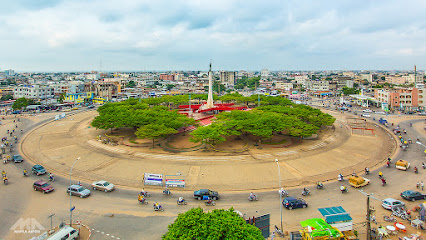
Amazon Statue
Explore the majestic Amazon Statue in Cotonou, a tribute to strength and heritage, capturing the essence of Benin's rich history and culture.
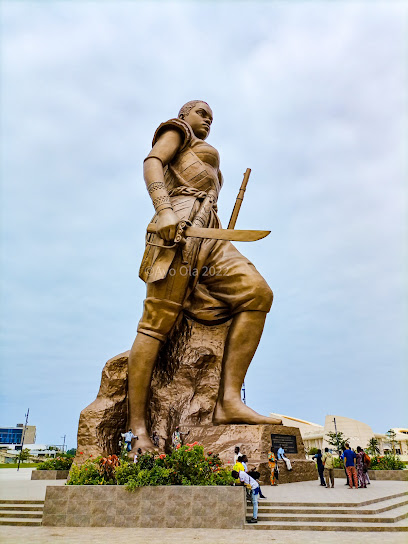
Place du Souvenir, ex Place des Martyrs
Discover the historical significance and serene beauty of Place du Souvenir in Cotonou, a must-visit landmark for every traveler exploring Benin.
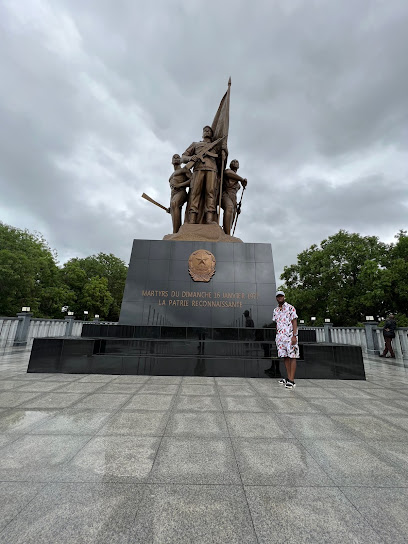
Bulgarian Square Georgi Dimitrov
Explore Bulgarian Square Georgi Dimitrov: A Cultural Gem in Cotonou, Perfect for Relaxing and Experiencing Local Life.
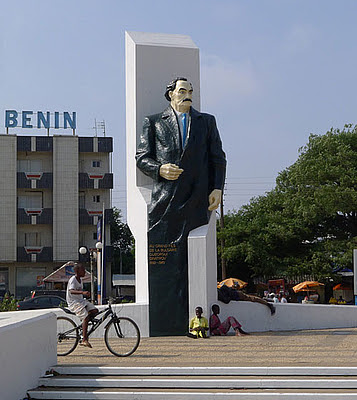
Place Lénine
Discover the historical charm of Place Lénine, a vibrant landmark in Cotonou that embodies the cultural heritage of Benin.
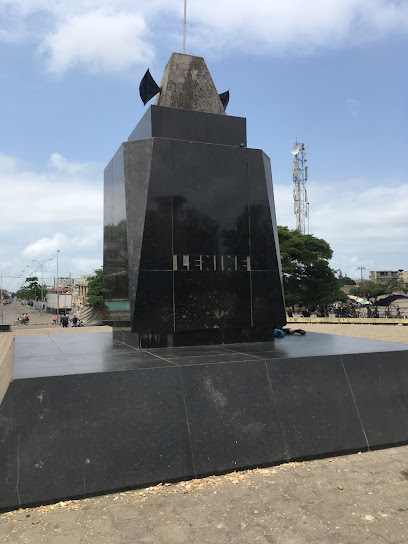
Esplanade des Amazones
Discover the rich heritage of Benin at the Esplanade des Amazones, a historical landmark honoring the legendary female warriors of the past.
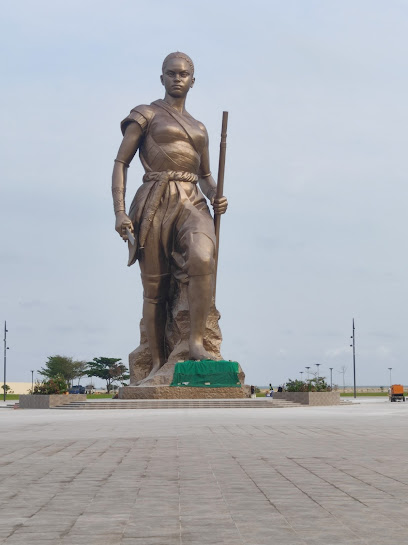
Monument Bio Guera
Discover the profound history and architectural beauty of Monument Bio Guera in Cotonou, a landmark rich in cultural significance.
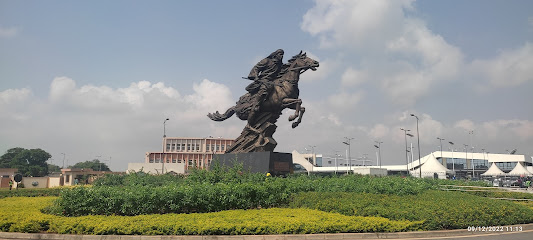
Place de l'amazone
Explore Place de l'amazone, a historical landmark in Cotonou that honors the legendary Amazon warriors of Benin, offering a unique glimpse into the region's rich heritage.
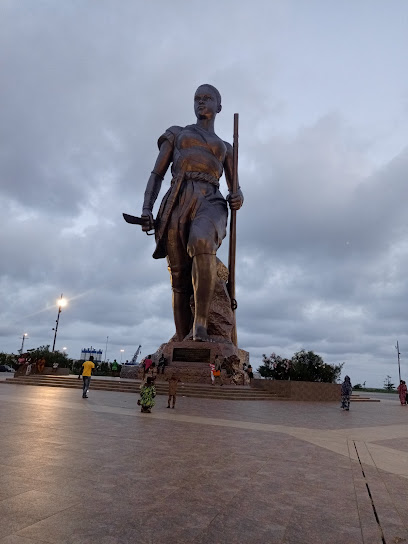
Monument aux Dévoués
Explore the Monument aux Dévoués in Cotonou, a striking historical landmark honoring the sacrifices of those who fought for freedom.
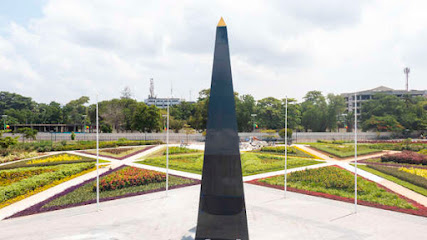
Place des Martyrs
Explore the rich cultural heritage of Benin at Place des Martyrs, a museum in Cotonou showcasing the nation's vibrant history and art.
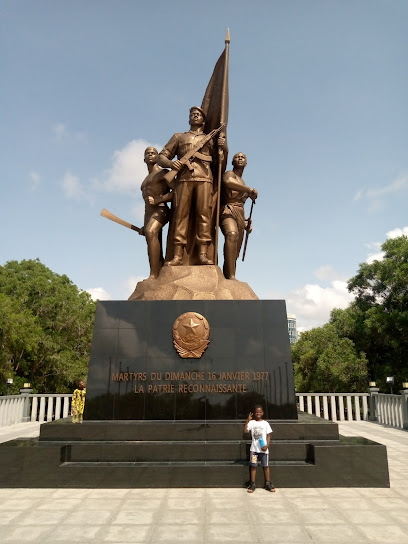
Unmissable attractions to see
Amazon Statue
Experience the beauty and cultural significance of the Amazon Statue in Cotonou, a must-visit landmark showcasing Benin's rich heritage.
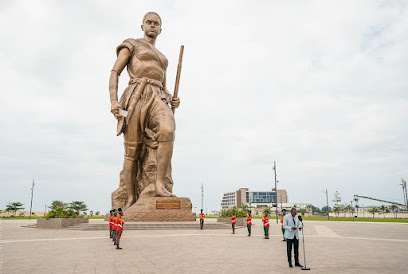
Place du Souvenir, ex Place des Martyrs
Discover the rich history of Cotonou at Place du Souvenir, a poignant tribute to the heroes of independence and a vibrant gathering place for locals.
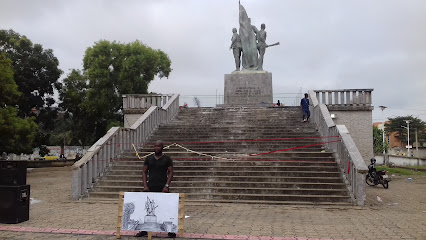
Place des Martyrs
Explore the profound legacy of freedom and resilience at Place des Martyrs, a must-visit museum in Cotonou, Benin.
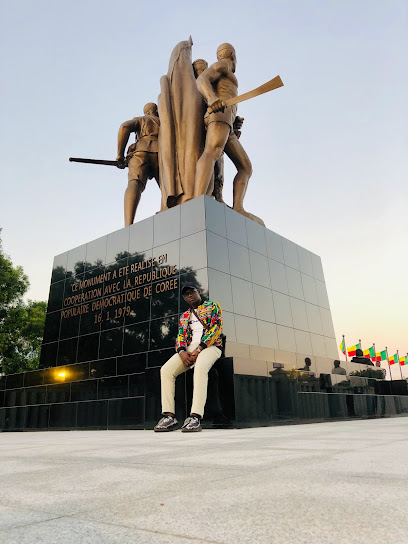
Exposition Art du Bénin d'hier à d'aujourd'hui
Discover the vibrant artistic heritage of Benin at the Exposition Art du Bénin, a captivating journey through the nation's cultural landscape.
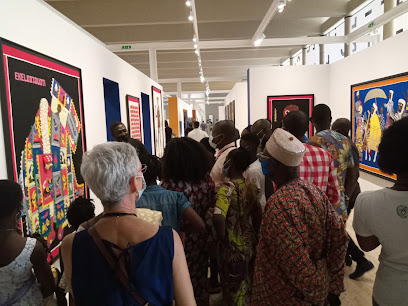
Benin en Image
Experience the vibrant culture and artistic heritage of Cotonou at Benin en Image, a must-visit tourist attraction showcasing Benin's rich history.
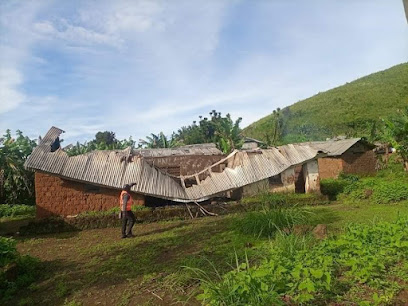
PTB Tourisme
Explore Cotonou's vibrant culture, rich history, and beautiful beaches, a must-visit destination in West Africa.
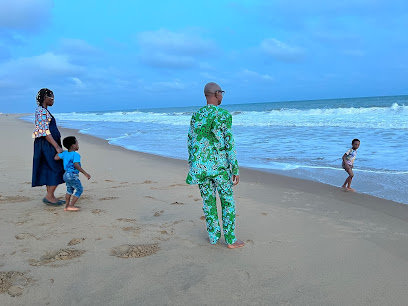
Essential places to dine
OMel Bar restaurant
Discover OMel Bar in Cotonou: A vibrant restaurant offering authentic Beninese cuisine and an unforgettable dining experience.
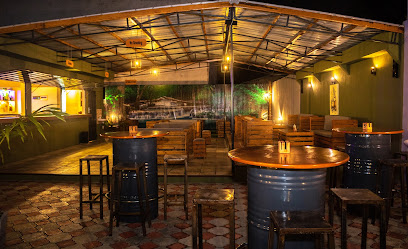
Restaurant TIEP SÉNÉGALAIS
Experience authentic Senegalese cuisine at Restaurant TIEP SÉNÉGALAIS in Cotonou - where every dish tells a story.
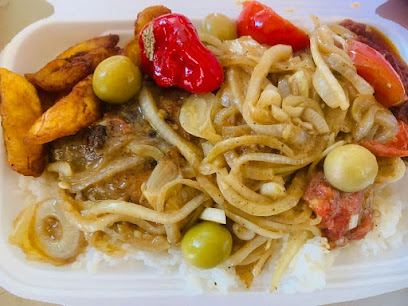
Restaurant le flowers Cotonou
Experience authentic Beninese flavors at Restaurant le Flowers in Cotonou, where every dish tells a story.
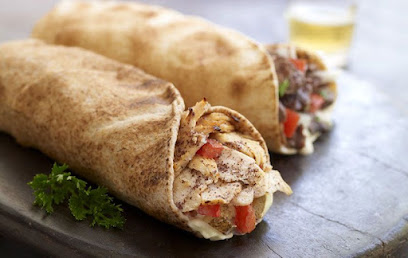
Restaurant Bar La Matrix
Experience the vibrant flavors of Benin at Restaurant Bar La Matrix—where family dining meets delightful culinary exploration.
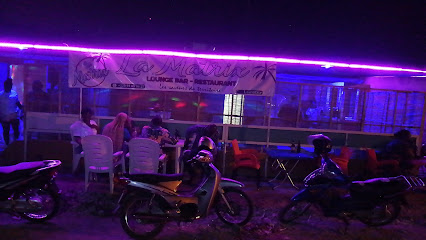
Restaurant HLG INDELEBILE
Discover authentic Beninese cuisine at Restaurant HLG INDELEBILE in Cotonou - where local flavors meet warm hospitality.
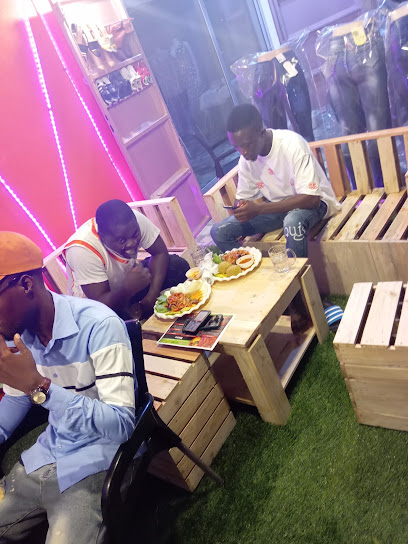
Secret Garden
Experience exquisite dining and serene escapes at Cotonou's hidden gem - the Secret Garden restaurant.
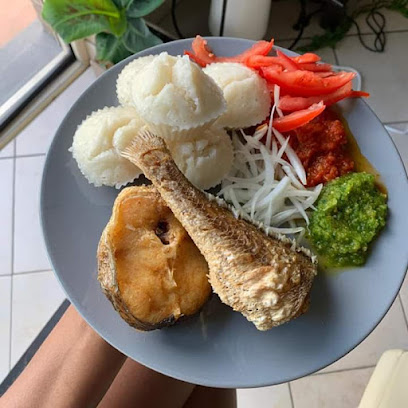
La Maison Restaurant
Discover the exquisite flavors of Benin at La Maison Restaurant in Cotonou - where local cuisine meets international flair.

Odette Food
Experience authentic Beninese cuisine at Odette Food in Cotonou – where every dish tells a story of flavor and tradition.

O'Goûter
Discover O'Goûter in Cotonou - where authentic local cuisine meets warm hospitality in a vibrant setting.
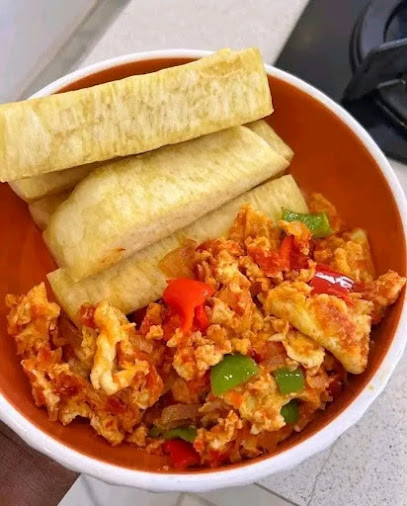
La Marmite des E
Experience authentic Beninese cuisine at La Marmite des E in Cotonou – where local flavors meet warm hospitality.
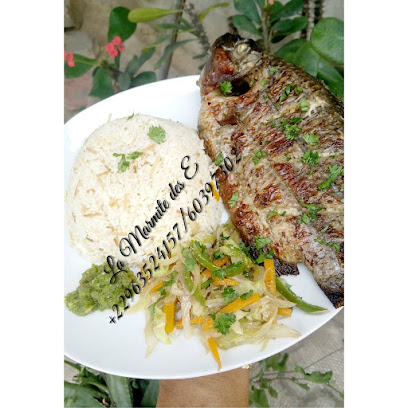
Markets, malls and hidden boutiques
BOUTIQUE WOODIN BAR-TITO
Discover the vibrant world of African fabrics and contemporary fashion at Boutique Woodin Bar-Tito in Cotonou, Benin.
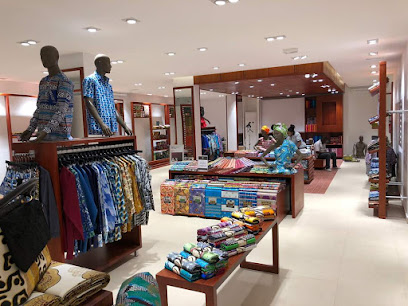
Ô'dam
Explore Ô'dam in Cotonou for a unique blend of women's and children's fashion, accessories, and local craftsmanship in a vibrant shopping experience.
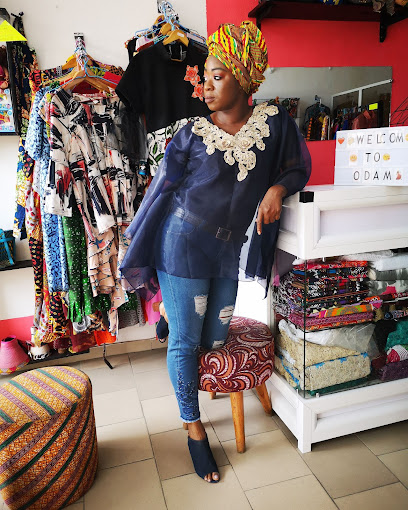
Pret-à-porter Haut De Gamme
Explore the elegance of Pret-à-porter Haut De Gamme in Cotonou, your go-to destination for exquisite fashion accessories that elevate your style.
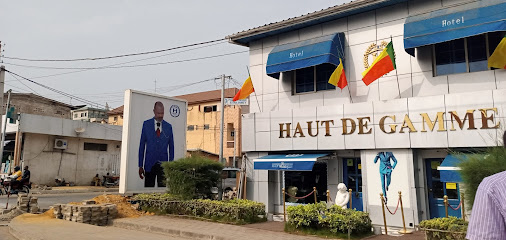
Occasion en or à cotonou
Discover the essence of luxury at Occasion en Or, Cotonou's premier perfume store featuring exquisite fragrances for every occasion.
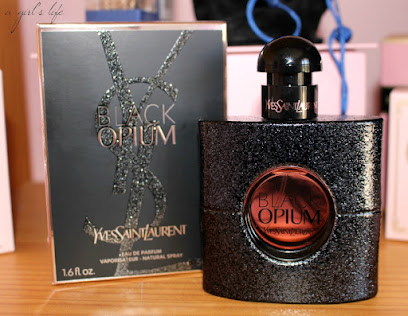
Wax&Co
Explore the vibrant culture of Benin with unique souvenirs and artisan crafts at Wax&Co, a must-visit gift shop in Cotonou.
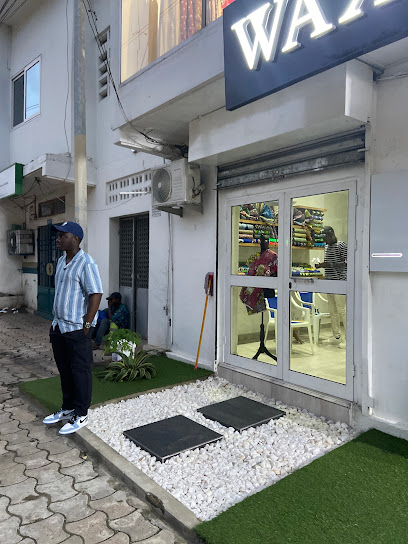
Fortune Shop
Explore the vibrant culture of Cotonou with unique finds and hand-crafted treasures at Fortune Shop, a boutique showcasing local artistry.

Woreber shop, Maison de Textile
Discover the vibrant world of textiles at Woreber Shop in Cotonou, where culture and craftsmanship meet in a colorful boutique experience.
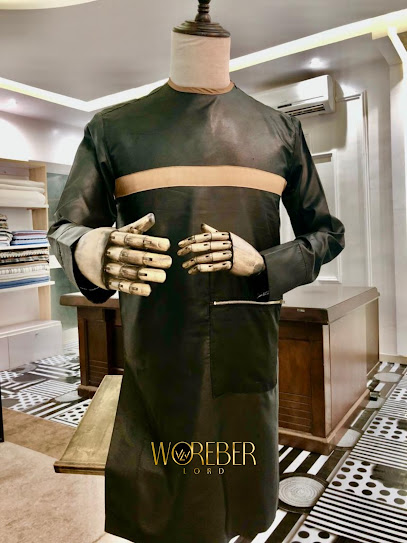
TOUT NUMERIQUE CIRCUIT OUVERT
Explore the eclectic treasures of TOUT NUMERIQUE CIRCUIT OUVERT, a unique consignment shop in Cotonou offering vintage finds and local crafts.

L'UNIQUE FILLE DE DIEU, 50m avant l'agence BOA Ste Rita, en venant du carrefour Agontikon
Explore unique fashion and local culture at L'UNIQUE FILLE DE DIEU in Cotonou - a stylish clothing store that reflects the spirit of Benin.

Eden Store
Discover unique women's fashion and local styles at Eden Store in the heart of Cotonou, where shopping meets culture and comfort.
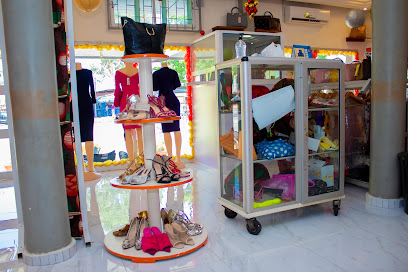
Essential bars & hidden hideouts
La congolaise bar
Discover the vibrant nightlife at La Congolaise Bar in Cotonou, where local flavors and a lively atmosphere await every visitor.
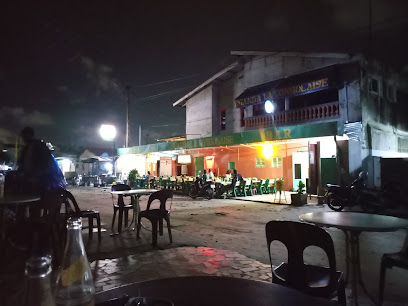
La Pharmacie Bar Restau
Discover La Pharmacie Bar Restau, a lively bar in Cotonou perfect for indulging in local drinks and vibrant nightlife in a friendly atmosphere.
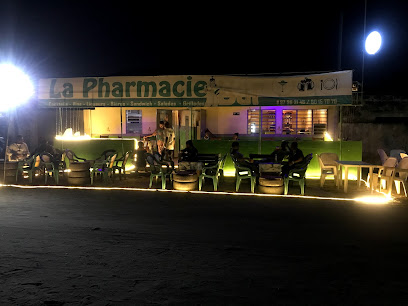
VENUS CLUB
Experience the vibrant nightlife of Cotonou at Venus Club, where local culture meets a lively bar atmosphere.
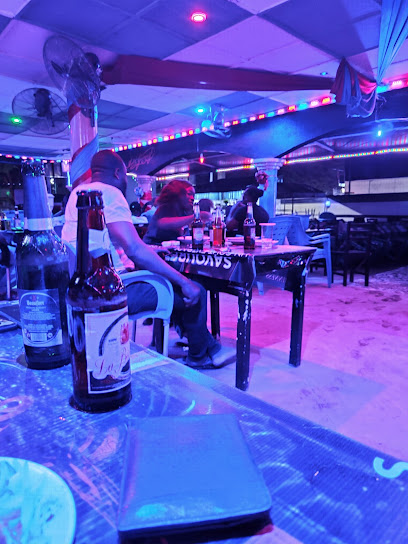
Le Mental
Dive into the excitement of sports at Le Mental, Cotonou's lively sports bar where fans unite over drinks and games.

Cafeteria Chez Diallo
Experience the vibrant flavors of Benin at Cafeteria Chez Diallo, a top grill house in Cotonou, perfect for a taste of local culture and cuisine.

BAR RESTAURANT VIP TEXAS
Discover the vibrant Texan flavors at Bar Restaurant VIP Texas in Cotonou, where authentic cuisine meets local culture in an inviting atmosphere.
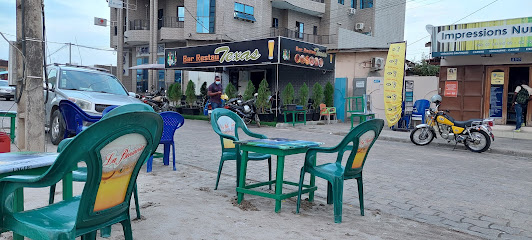
Bar Restaurant CAF FOOD
Discover the vibrant flavors of Benin at Bar Restaurant CAF FOOD, where local cuisine meets a lively atmosphere in the heart of Cotonou.
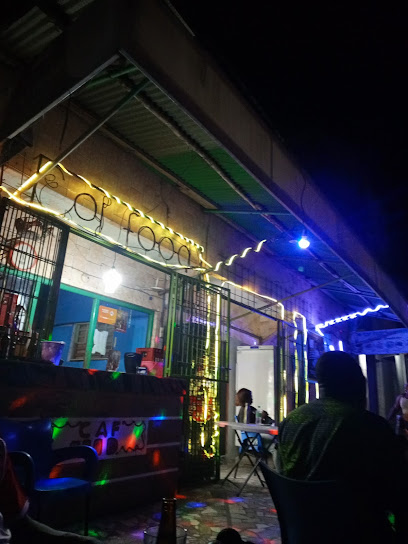
Cotonou 1ère Von
Experience the vibrant nightlife at Cotonou 1ère Von, a lively bar in the heart of Cotonou, where locals and tourists gather to unwind and socialize.
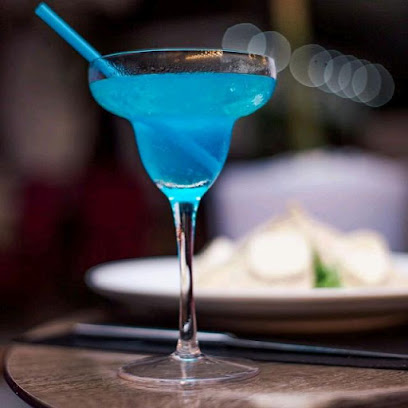
RBR
Discover RBR, Cotonou's lively bar, where refreshing drinks meet vibrant entertainment for an unforgettable night out.

LA PRINCESSE
Discover La Princesse, a vibrant bar in Cotonou where locals and tourists converge for refreshing drinks and lively entertainment amidst a warm atmosphere.

Local Phrases
-
- HelloAgbo
[ag-bo] - GoodbyeDagbe
[dag-be] - YesEe
[ee] - NoA-a
[a-a] - Please/You're welcomeAkpe
[ak-pe] - Thank youMedasi
[me-da-see] - Excuse me/SorryAwo
[awo] - How are you?Wo ho te sen?
[wo ho te sen?] - Fine. And you?Adzo. Na wo?
[ad-zo. na wo?] - Do you speak English?Wo gble angilisigbe?
[wo gble an-gi-li-sig-be?] - I don't understandMi kɔɔ ba
[mi kɔɔ ba]
- HelloAgbo
-
- I'd like to see the menu, pleaseMi fe wo ɖe menu, me
[mi fe wo ɖe menu, me] - I don't eat meatMi nyaɖo nyɔŋlɔ
[mi nyaɖo nyɔŋ-lo] - Cheers!Afehyia pa!
[a-fe-hyia pa!] - I would like to pay, pleaseMi fe wo ɖe dɔkɔ, me
[mi fe wo ɖe dɔ-kɔ, me]
- I'd like to see the menu, pleaseMi fe wo ɖe menu, me
-
- Help!Eji!
[e-ji!] - Go away!Ji le!
[ji le!] - Call the Police!Kɔlɔ plis!
[kɔ-lɔ plis!] - Call a doctor!Kɔlɔ wɔlɔ!
[kɔ-lɔ wɔ-lɔ!] - I'm lostMi la nu
[mi la nu] - I'm illMi nɔ
[mi nɔ]
- Help!Eji!
-
- I'd like to buy...Mi fe wo se...
[mi fe wo se...] - I'm just lookingMi tsɔ ɖe
[mi tsɔ ɖe] - How much is it?E ɖeɖe le?
[e ɖe-ɖe le?] - That's too expensiveƉeɖe le ŋutɔ
[ɖe-ɖe le ŋu-tɔ] - Can you lower the price?Wo ɖeɖe ɖe ŋkɔ?
[wo ɖe-ɖe ɖe ŋkɔ?]
- I'd like to buy...Mi fe wo se...
-
- What time is it?E ɖeka ɖeɖe le?
[e ɖe-ka ɖe-ɖe le?] - It's one o'clockƉeɖe le si
[ɖe-ɖe le see] - Half past (10)E si ɖe ɖe
[e see ɖe ɖe] - MorningDzifo
[dzi-fo] - AfternoonƉatɔ
[ɖa-tɔ] - EveningAlɔsi
[a-lo-si] - YesterdayZana
[za-na] - TodayKpekpekpe
[kpek-pek-pe] - TomorrowŊudukɔ
[ŋu-du-kɔ] - 1Si
[see] - 2Eɖe
[e-ɖe] - 3Eha
[e-ha] - 4Enɔ
[e-nɔ] - 5Eyo
[e-yo] - 6Eɖo
[e-ɖo] - 7Eva
[e-va] - 8Evi
[e-vi] - 9Egbe
[e-gbe] - 10Plɔ
[plo]
- What time is it?E ɖeka ɖeɖe le?
-
- Where's a/the...?Ɖeɖe ɖe...
[ɖe-ɖe ɖe...] - What's the address?E ɖeɖe kple...
[e ɖe-ɖe kple...] - Can you show me (on the map)?Wo ɖeɖe mi (ɖe ɖe atɔ)
[wo ɖe-ɖe mi (ɖe ɖe a-to)] - When's the next (bus)?E si ɖe ɖe (trokosi)?
[e see ɖe ɖe (tro-ko-si)?] - A ticket (to ....)Dɔkɔ (ɖe ....)
[dɔ-kɔ (ɖe ....)]
- Where's a/the...?Ɖeɖe ɖe...
History of Gbedjromede
-
Gbedjromede, like much of Cotonou, is deeply rooted in the traditions of the Fon and Yoruba peoples, who have inhabited the region for centuries. This neighborhood reflects a rich tapestry of cultures, with vibrant markets, traditional festivals, and a strong sense of community. The cultural practices, including music, dance, and local crafts, are essential elements of Gbedjromede's identity.
-
During the late 19th and early 20th centuries, Cotonou, including Gbedjromede, was significantly influenced by French colonial rule. The establishment of Cotonou as a major port city led to increased trade and migration, shaping the demographic landscape of Gbedjromede. Colonial architecture and infrastructure developments during this period are still evident in various parts of the neighborhood.
-
After gaining independence from France in 1960, Benin underwent substantial political and social changes. Gbedjromede became a focal point for urban migration as people from rural areas sought opportunities in the growing city of Cotonou. This influx contributed to the neighborhood's rapid development, with new housing, markets, and social services emerging to accommodate the changing population.
-
In recent decades, Gbedjromede has evolved into a vibrant commercial hub within Cotonou. The local economy thrives on small businesses, markets, and trade, with many residents engaged in informal sectors. The neighborhood's economic activities reflect the broader trends of urbanization and globalization affecting Cotonou and the surrounding region.
-
Gbedjromede is known for its lively cultural festivals, which celebrate the neighborhood's heritage and foster community ties. Events like the annual Fête de la Musique and local traditional ceremonies showcase the rich cultural diversity, featuring music, dance, and culinary delights. These gatherings not only strengthen community bonds but also attract visitors, enhancing Gbedjromede's cultural significance within Cotonou.
Gbedjromede Essentials
-
Gbedjromede is easily accessible from various neighborhoods in Cotonou. You can take a taxi or a motorcycle taxi (zemidjan) from central Cotonou, which typically costs around 1,000 to 2,000 CFA francs depending on your starting point. Public buses also operate in the area, and routes are generally marked with signs. For those coming from the airport, a taxi ride to Gbedjromede will take approximately 30 minutes, depending on traffic.
-
Gbedjromede is a vibrant neighborhood best explored on foot, as many attractions are within walking distance. For longer distances, you can use local taxis or motorcycle taxis, which are a popular and efficient means of transport. Public buses also run through the area, providing connections to other parts of Cotonou. Bicycles can be rented from local shops and are a great way to navigate the neighborhood at a leisurely pace.
-
Gbedjromede is generally safe for tourists, but it is advisable to exercise caution. Avoid walking alone at night, particularly in less populated areas. Petty crimes, such as pickpocketing, can occur in crowded markets, so keep your belongings secure. Stay away from isolated streets, especially after dark. Areas near the bus station can also attract unwanted attention; remain vigilant when passing through.
-
In case of emergencies, dial 117 for police assistance or 118 for fire services. Local hospitals are available, including the Centre Hospitalier de Cotonou, which provides emergency care. It is advisable to carry a copy of your passport and any relevant travel insurance information. Pharmacies are available throughout Gbedjromede for minor health issues, and it's recommended to have basic first-aid supplies on hand.
-
Fashion: Do wear lightweight, modest clothing suitable for the warm climate. Avoid wearing overly revealing outfits. Religion: Do respect local religious customs and dress appropriately when visiting places of worship. Public Transport: Do offer your seat to the elderly or pregnant women. Don't engage in loud conversations on public transport. Greetings: Do greet locals with a handshake and a smile. Eating & Drinking: Do try local street food and beverages, but ensure they are from reputable vendors. Don't refuse food or drink offered to you, as it is considered disrespectful.
-
To experience Gbedjromede like a local, explore its bustling markets, particularly the Marché Dantokpa, one of the largest in West Africa. Engage with local vendors and try traditional dishes such as akassa (fermented corn) and piment (pepper sauce). Attend communal events or festivals if your visit coincides; these are great opportunities to experience the local culture. Additionally, learn a few phrases in Fon or Yoruba, as locals appreciate the effort and it can enhance your interactions.
Nearby Cities to Gbedjromede
-
Things To Do in Porto-Novo
-
Things To Do in Ouidah
-
Things To Do in Lokossa
-
Things To Do in Aneho
-
Things To Do in Lagos
-
Things To Do in Abeokuta
-
Things To Do in Lomé
-
Things To Do in Notse
-
Things To Do in Atakpamé
-
Things To Do in Ibadan
-
Things To Do in Kpalimé
-
Things To Do in Ho
-
Things To Do in Koforidua
-
Things To Do in Accra
-
Things To Do in Benin City








